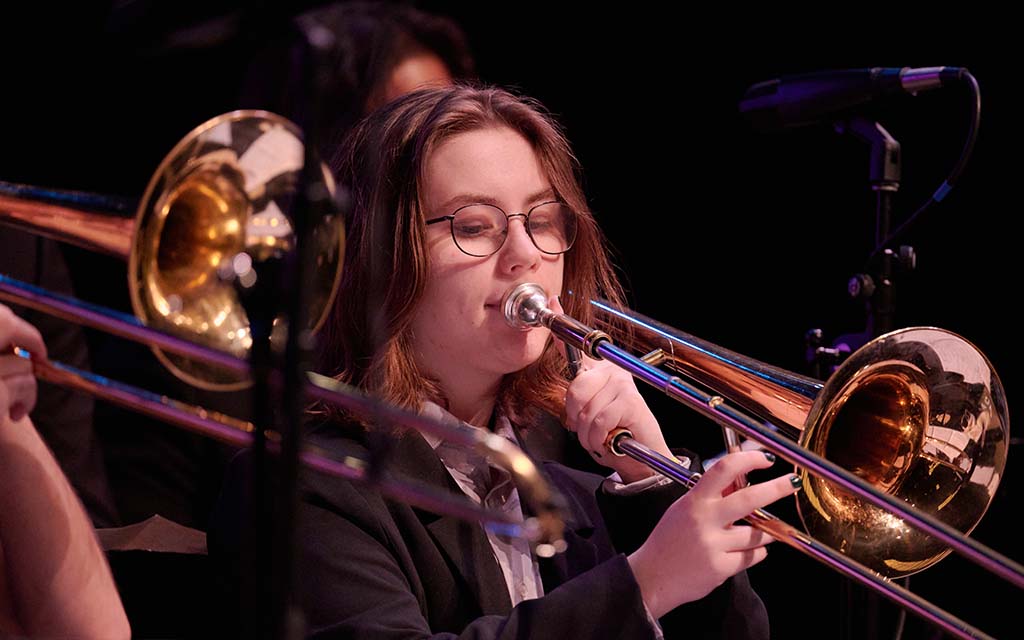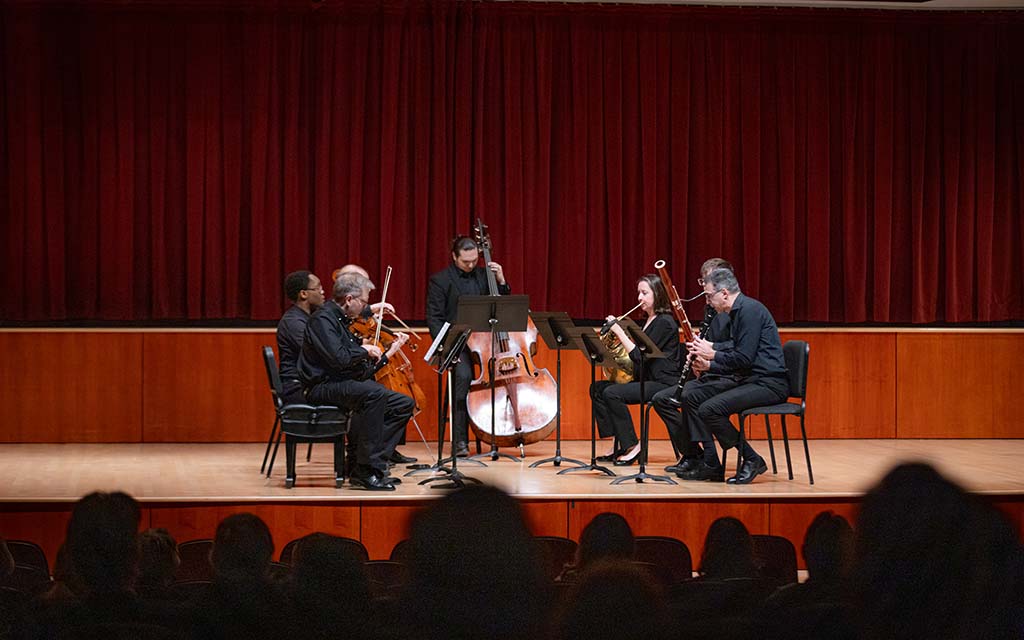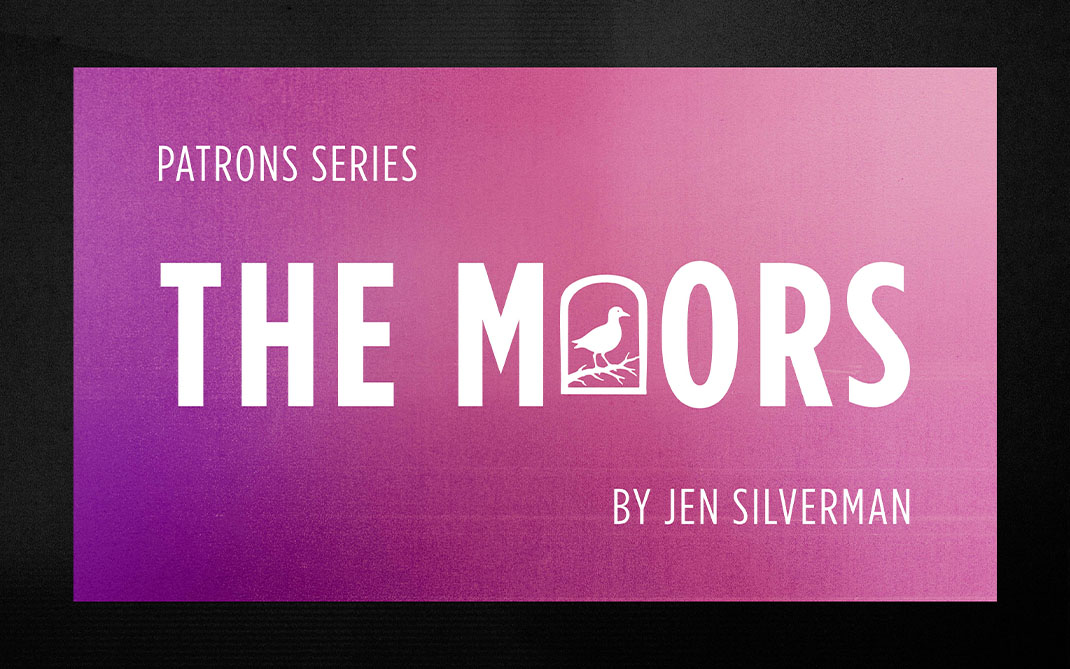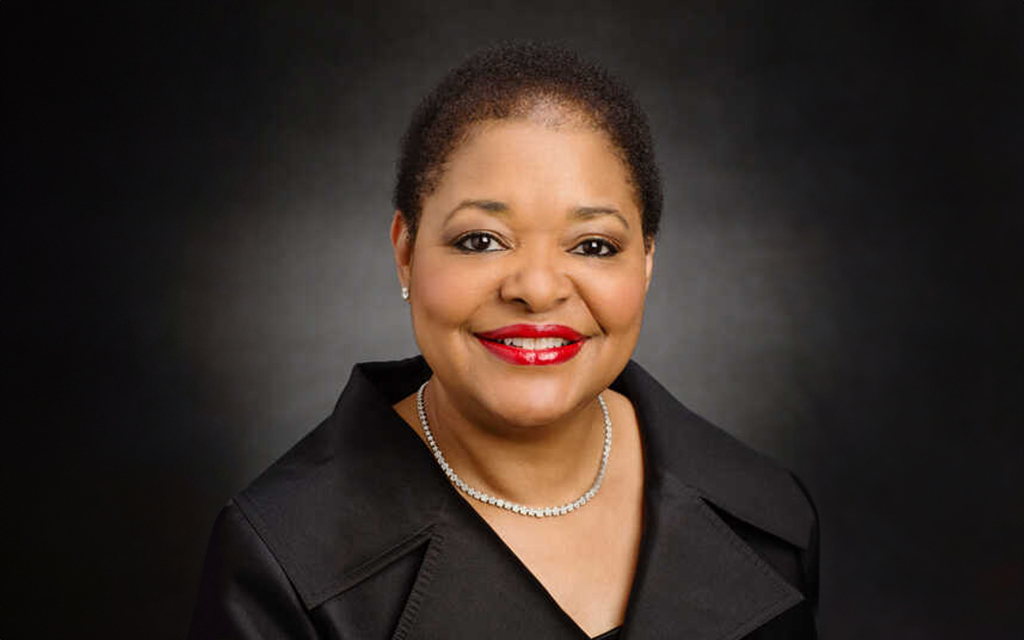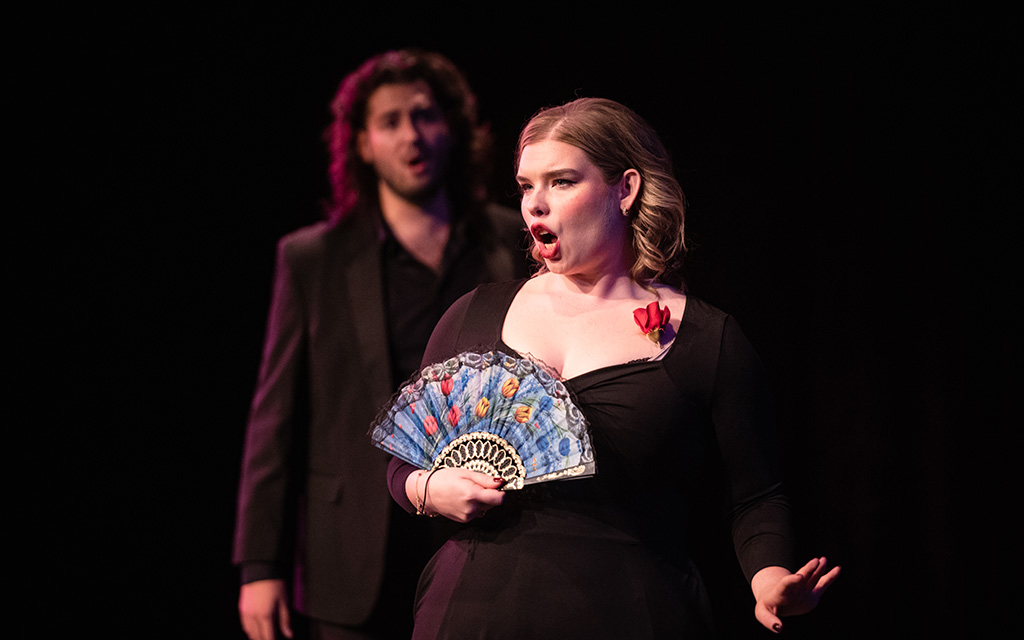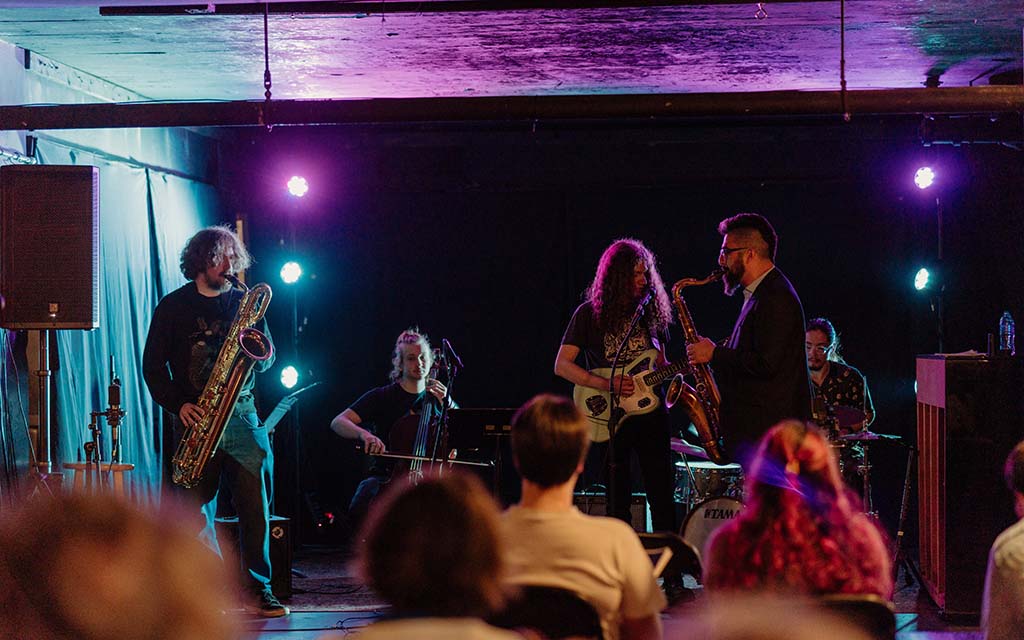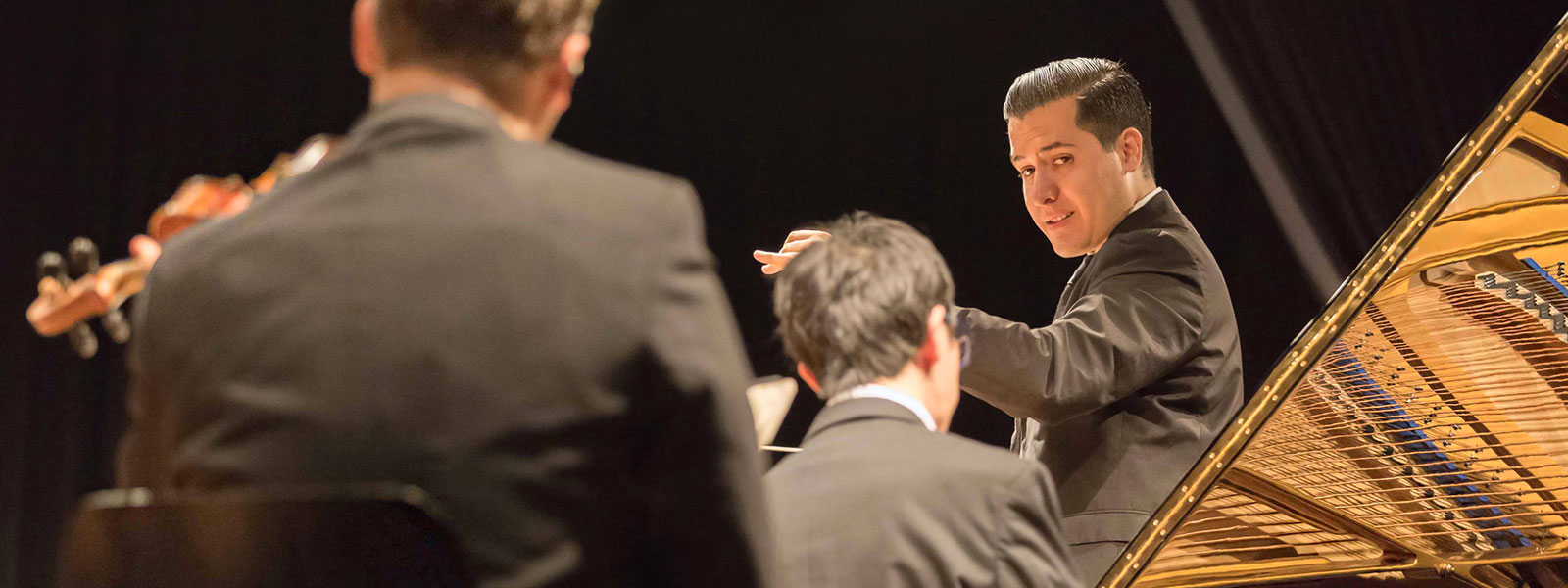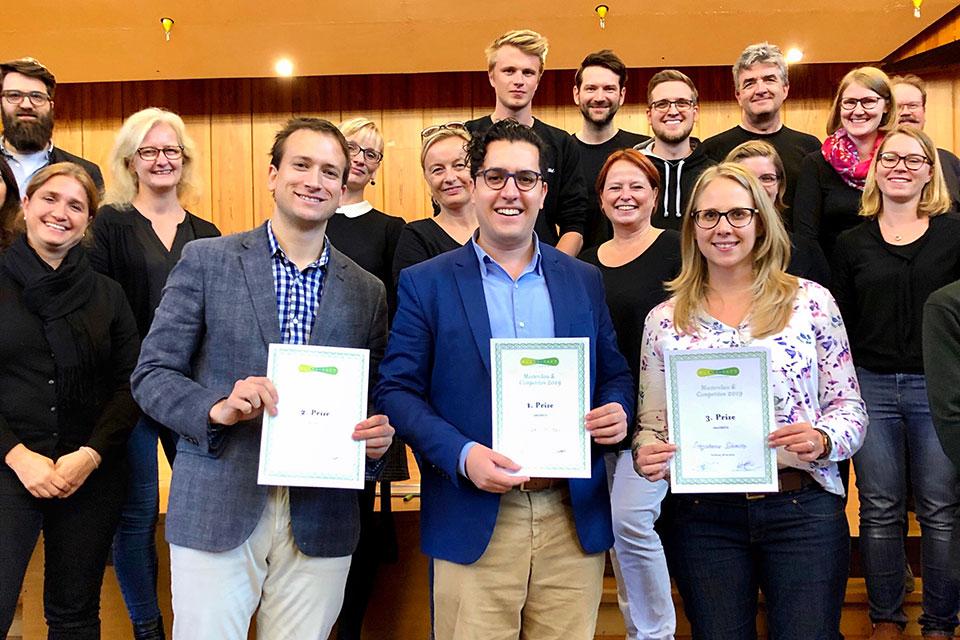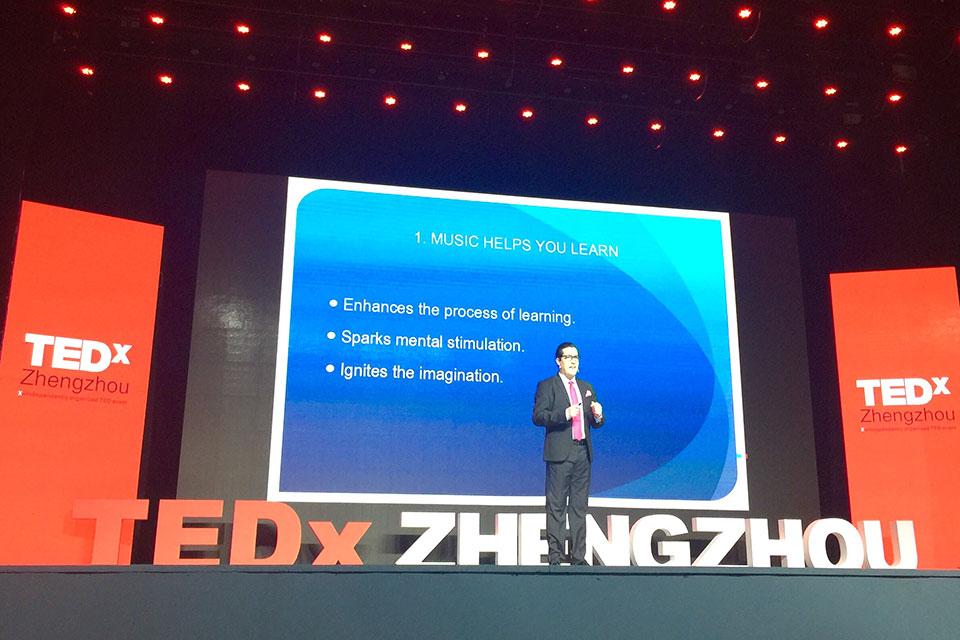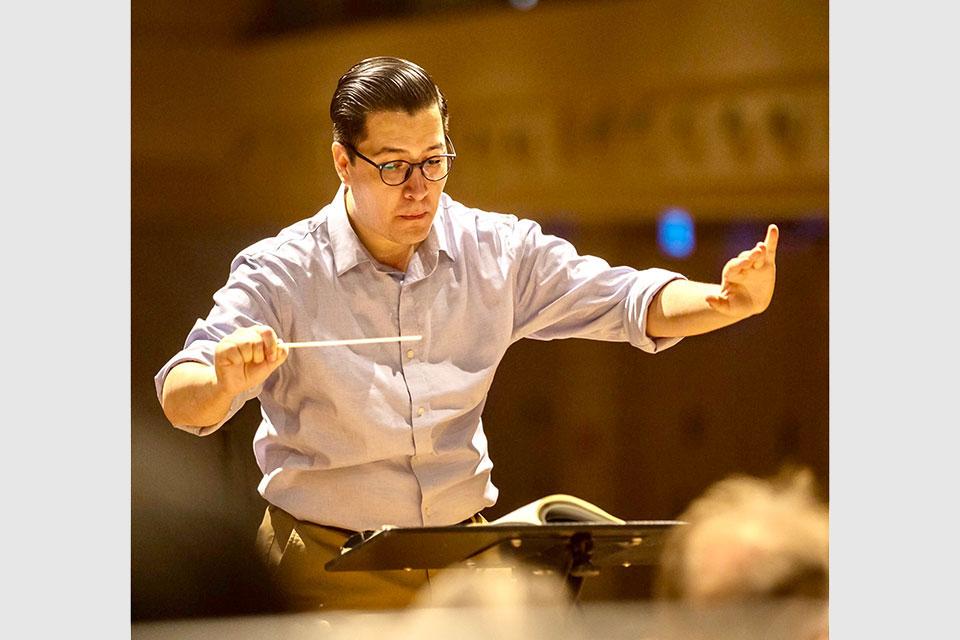Conducting and music education take center stage for alumnus Felipe Tristán
For Felipe Tristán, music is everything. He received a Professional Artist Certificate (PAC) with a concentration in flute from UNCSA in 2011. He now conducts, performs and teaches around the world, driven by a belief that music has the power to connect and inspire across cultures.
He currently serves as Artistic Director of the Brooklyn Symphony Orchestra (BSO), Associate Conductor of the San Antonio Philharmonic, Conductor of the Repertory Symphony Orchestra at the pre-college division of the Manhattan School of Music, and is Assistant Director of Education for the Afro Latin Jazz Alliance. He also serves as Principal Conductor of Ballet de Monterrey in Mexico — where he has led acclaimed productions of "Romeo & Juliet," "Giselle" and "The Nutcracker." Additionally, Tristán regularly guest conducts and teaches at a number of institutions around the globe, including UNCSA.
In the last few years, Tristán has continued to make an impact in the music industry around the world. He made his debut in Vienna conducting with the Prague Philharmonic at the Hofburg Imperial Palace and received Poland’s Muzyczne Orły Award for Best Recording with the Janáček Philharmonic Orchestra for an album featuring works by Penderecki and Reinecke. He completed a residency with the San Francisco Ballet, returned to the MET Gala under the artistic direction of Anna Wintour and Baz Luhrmann, and participated in a recording project that won the Grammy Award for “Best Latin Jazz Album” in 2023.
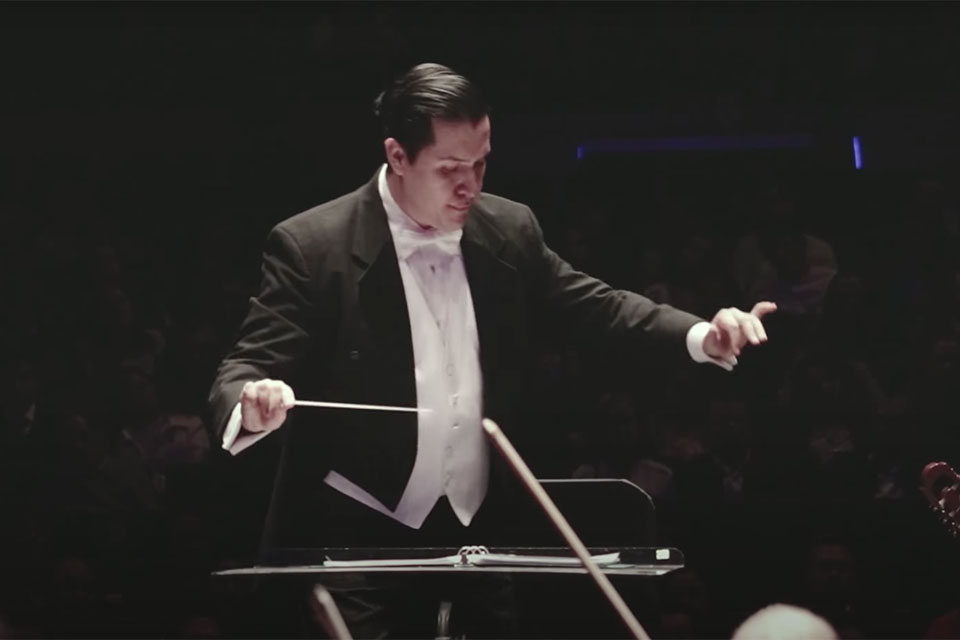
Felipe Tristán conducts the Orquesta Filarmónica del Estado de Querétaro performing "Concierto de Aranjuez."
Becoming a musician
Growing up in the city of Monterrey, Mexico, his pursuit of music started early. “I’ve always been involved in music,” he says. “Even though I don’t come from a ‘musical’ family — they are engineers and accountants — there was always music and other art around. Everyone had some talent.”
And throughout his years in school bands and with the state and national orchestras, he was always intrigued by the role of the conductor.
It was when he entered the conservatory at Escuela Superior de Música y Danza de Monterrey and took his first chamber class that the deeper role of the musician (and conductor) came into focus. “In a chamber ensemble, every person is expected to contribute more than just notes,” he says. “They are sculpting the music together. I realized that we do, and should, have control over the music.”
Studying at UNCSA
He continued his musical education at the University of Houston before eyeing Winston-Salem for his graduate studies. He first met UNCSA flute professor Tadeu Coelho when he visited as a guest instructor in Monterrey. “I had never heard anyone play the flute like that before,” Tristán recalls. “I had to have a class with him. Everyone that played for him sounded better afterward.” He did indeed have a masterclass with Coelho, and knew that he wanted to study with him in the future.
Several years later, he auditioned to study with Coelho at UNCSA. And it may have been the instructor that drew him to the school, but it was the artistic community and city that cemented his choice. “It’s a paradise for any artist,” Tristán says, particularly because students from each of the disciplines live and work so closely together. “I loved it there. Winston-Salem is such a lovely city and as a student, you are the star. That doesn’t happen everywhere.”
It was also at UNCSA that he realized that being both a flutist and a conductor was a viable path, that he didn’t necessarily have to choose between the two. Then-conductor of the UNCSA Symphony Orchestra Ransom Wilson was both a flutist and conductor and, along with Coelho’s encouragement, showed Tristán what a career doing both might look like.
Trust your gut feeling. Listen to your teachers, who have the wisdom of experience. But learn to listen to yourself and you will become your own teacher. As artists, we all have something to say—we are creators.
Felipe Tristán
It taught Tristán a valuable lesson, and one he shares with young musicians: “Trust your gut feeling,” he says. “Listen to your teachers, who have the wisdom of experience. But learn to listen to yourself and you will become your own teacher. As artists, we all have something to say—we are creators.”
A career in music
Immediately following graduate school, Tristán moved to New York City as a Kenan Fellow at Lincoln Center Education. As much as his role at Lincoln Center was influential, so was the simple act of arriving in New York. “New York is so iconic,” he remembers. “Coming here and seeing all of these places that had seemed so unattainable ... was very emotional and memorable.”
Over the last decade, he’s had many such memorable moments. In 2016, he made his conducting debut at Carnegie Hall, he won first prize in two conducting competitions (the International Conductors Workshop and Competition in Atlanta and the Klangkraft Orchestra Conducting Competition in Germany) and he completed a tour of Mexico with the BSO in March 2020.
“The tour was two years in the making and I’m just so grateful,” Tristán says of this most recent venture, completed just before COVID-19 quarantine measures were put into place. “We invited musicians from the top three conservatories in Mexico to join the orchestra and everyone was so kind and friendly with one another. It was amazing.”
Likewise, his educational roles have continued to evolve since his first days in the city. His role with the Grammy-award winning Afro Latin Jazz Alliance has been similar to what he did at Lincoln Center, he says. And, now, he also co-produces the organization’s digital content and its promotion.
“I manage teaching artists who go into inner city public schools where the population is primarily Black and Latino,” he says. “I love going to the schools, speaking Spanish with the students. It takes me back to my childhood.”
Returning to UNCSA
This fall, Tristán returns to his alma mater as guest conductor for the 2025 production of "The Nutcracker." “Returning to UNCSA is very meaningful,” he says. "'The Nutcracker' is one of the school’s signature productions, where multiple disciplines come together to create something special. It’s wonderful to reconnect with the same spirit of collaboration that shaped my own education here.”
Tristán is most excited to be back amongst the creativity and work ethic of all the student that bring "The Nutcracker" to life. “The collaboration across disciplines was — and still is — something extraordinary. It’s a place where creativity doesn’t have borders.”
Though Tristán's memories of "The Nutcracker" are connected to the Stevens Center which is currently undergoing renovations, he feels ready to step up to the podium at the Steven Tanger Center for the Performing Arts and lead the UNCSA Symphony Orchestra through Tchaikovsky's timeless score. "Despite having played and conducted "The Nutcracker" many times now, I don’t think I’ll ever tire of its timeless music and magic. It’s a masterpiece.”
by Corrine Luthy and Melissa Upton-Julio
Originally published August 6, 2020, Updated November 5, 2025
